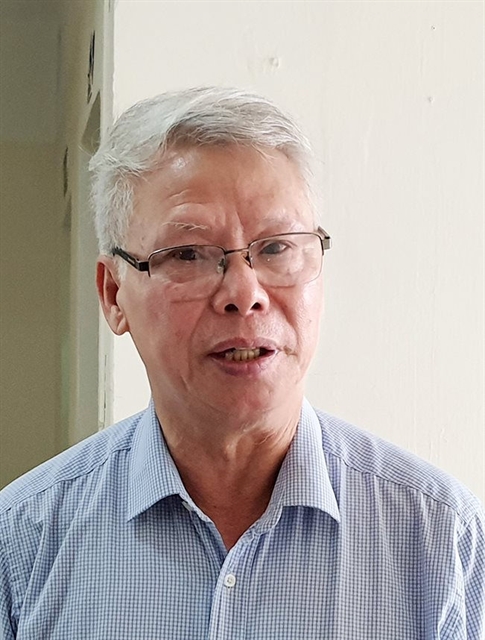 Environment
Environment

Vice chairman and the General Secretary of the Vietnam Responsible Care Council Đỗ Thanh Bái spoke with Tài nguyên & Môi trường (Natural Resources and Environment) newspaper about the plastic waste recycling and technologies to solve plastic waste in Việt Nam.

|
| Vice chairman and the general secretary of the Vietnam Responsible Care Council Đỗ Thanh Bái. Photo baotainguyenmoitruong.vn |
Vice chairman and general secretary of the Vietnam Responsible Care Council Đỗ Thanh Bái spoke with Tài Nguyên & Môi trường (Natural Resources and Environment) newspaper about plastic waste recycling and technology.
What is being done to recycle plastic waste in Việt Nam?
Plastic, like many other materials, is basically made of oil. This is a finite resource. Unlike infinite resources, we need to utilize its value without causing impacts to the environment.
Plastic recycling in Việt Nam and in Hà Nội in particular involves recovering scrap or waste plastic and reprocessing the material into new products. However, this is not done on a wide scale.
I have been visiting many enterprises introduced by the city’s Department of Natural Resources and Environment. They all ensure a certain process of plastic recycling. For example, an enterprise that wants to convert plastic bottles into polyester needs specific technology. This is totally different from an enterprise that uses technology to burn plastic bottles into particles. Different purposes require different technology.
The Government, MONRE and other ministries are forming legislation to develop new technology. It’s been almost ten years since regulations on plastic bags were put in place. The thicker plastic bags are, the more times they can be used, but production costs are quite high. The estimated cost for a kg of plastic bags is between VNĐ30,000-40,000 (US$1.2-1.6). The thinner the bag is, the cheaper it is. Thin bags are produced massively, causing a large amount of plastic waste. Therefore, it is necessary to have criteria for plastic bag production, which helps bags to be more useful and eco-friendly.
Currently, Hà Nội as well as many localities in Việt Nam are changing their behaviours from 3R (reduce, reuse and recycle) to 5R (refuse, reduce, reuse, recycle, and restore). Of that, ‘reduce’ and ‘refuse’ are the responsibility of producers and consumers. In the near future, a new environmental law will introduce the concept of a circular economy with a policy that forces consumers and manufacturers to be more responsible for the utilisation of used materials.
What methods are being used to recycle plastic?
There are currently three main recycling forms of technology. The best way applied in developed countries is collecting, cleaning, classifying each type of plastic and converting it into the basic active ingredient.
The second method is cleaning and chopping plastic into small pieces, then putting them in a furnace to create new products. Medical plastic is more difficult to make as the heat may not be strong enough to kill germs, so it is necessary to have tight control.
The third method is turning plastic waste into construction materials such as concrete. Currently, HCM City is applying this technology.
What can be done to make people understand the harm of plastic waste and change their habits?
I’ve found that it’s much more simple doing it in a foreign country. For example, people drop empty bottles in the boxes at supermarkets to get back their deposits. Old newspapers and other materials have the same policy. To encourage people to minimise or reuse their plastic waste, we must help people understand the harm of plastic waste to the environment and to human health.
People may not know the impact of plastic waste on the environment, but they are very concerned about their health. In addition, it is also necessary to specify the levels on the product label stating the harm and impact of plastic materials on the environment.
The authorities need to raise people’s awareness with easy-to-remember slogans and eye-catching pictures.
What role does the State play in the implementation of anti-plastic waste solutions?
The State should play a regulatory role and control plastic production criteria because consumers only listen to production distributors and authorities. Therefore, we need to be transparent in our product quality standards, especially for recycled goods.
In addition, when the State agrees to sell products, there must be policies to encourage and raise consumers’ awareness.
I think we are too focused on waste disposal. The main problem is plastic production management. This requires the Government, media agencies and retailers tell consumers how to effectively use plastic products to limit plastic waste. — VNS